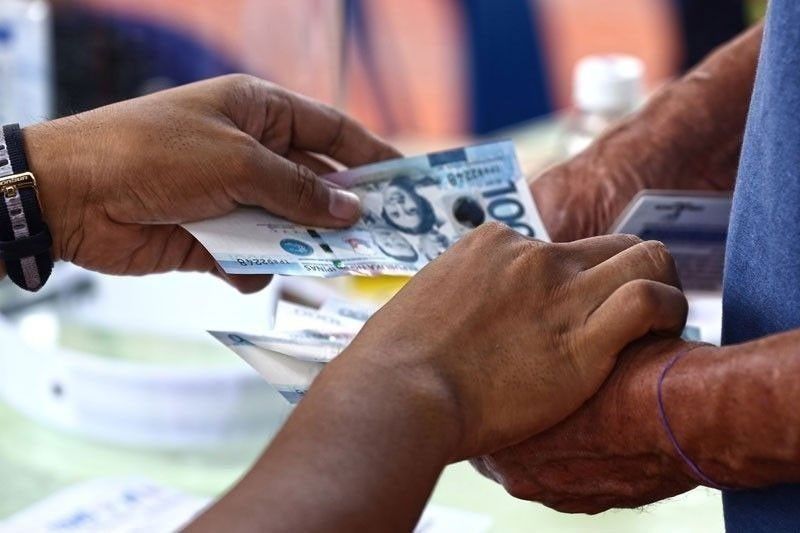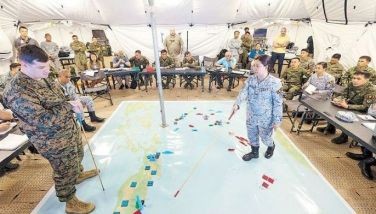Drilon: Government prioritizing funds for NTF-ELCAC over ayuda

MANILA, Philippines — As the government scrambles for funds for emergency financial assistance to those to be hard hit by the enhanced community quarantine (ECQ) next week, the Duterte administration has already released “up to the last centavo” the controversial P16.3-billion anti-insurgency funds in just four months, Senate Minority Leader Franklin Drilon said yesterday.
Drilon said the P16.3 billion lodged under the National Task Force to End Local Communist Armed Conflict (NTF-ELCAC) was released in just four months from March, of which P4 billion or a fourth of the funds went to the Davao region.
“It’s sad that there are funds for anti-insurgency but no funds for ayuda,” Drilon told dzBB in Filipino, referring to the allocation supposedly to be used for the economic development of barangays cleared of communist rebels.
He said the money could have been used instead for the much-needed assistance that can put food on the table of around 4.2 million Filipino families who experienced hunger during the pandemic.
He said that at P4,000 per family, the fund can benefit four million Filipino families when Metro Manila and other regions revert to ECQ from Aug. 6 to 20 to control the surge in COVD-19 cases in the country.
Drilon pushed for the inclusion of the funding for emergency assistance in the 2021 national budget but it was not a priority of the government compared to anti-insurgency.
“The government did not listen. It is obvious that the government is giving priority to anti-insurgency over the need for ayuda, and other health and social needs of our country necessary for us to move forward with our pandemic response,” he said.
He vowed to oppose any budget for NTF-ELCAC for 2022, which is an election year. Interior Secretary Eduardo Año recently said they will propose P40 billion for NTF-ELCAC next year, double its present P19.2 billion.
Drilon also supports another round of “cash sweep” in order to generate funds to assist Filipinos and businesses heavily affected by the pandemic.
Ease vaccine procurement restrictions further
The government must further ease restrictions to allow the private sector and local government units (LGUs) to procure COVID-19 vaccines, as the country races to vaccinate as many Filipinos as possible to achieve herd immunity before the Delta variant and other virulent strains overwhelm the country, Drilon said.
The senator said at present, vaccine procurement by private companies and LGUs would still need permission from the national government, which adds to red tape or delays in obtaining the life-saving jabs now needed more than ever with the spread of the Delta variant.
“If they (government) are assuring us that there’s enough supply of vaccines, then it’s time to allow the private sector, and the LGUs to import vaccines without having to go through the government,” he told dzBB.
Sen. Francis Tolentino earlier urged the Department of Foreign Affairs to help in speeding up the procurement of vaccines as well as looking for other untapped sources abroad.
Tolentino cited the case of Cuba and India that both have developed their respective COVID-19 vaccines, which the country could procure.
He said Cuba has produced the Abdala vaccine that is reportedly 92.8 percent effective against the virus while India has its recognized Covovax.
“These vaccines are not part of our wish list, which are there presently and waiting to be procured,” the senator said in plenary. “Diplomatic relations can be part of the solution of the vaccine gap that we have right now.”
Meanwhile, Sen. Sonny Angara said the nation still has time to prepare and learn lessons from the alarming situation in Indonesia, including improving the bio-surveillance and genomic sequencing in the country.
Angara said genomic sequencing is already being done by the Philippine Genome Center (PGC) but at a very low rate.
At present, the country evaluates a mere 750 samples per week or less than one percent of the recorded cases nationwide. This is way below the ideal sequencing rate of five percent as indicated by the PGC itself, he said.
The Department of Health (DOH) has also reported that Regions V (Bicol), VIII (Eastern Visayas), IX (Zamboanga peninsula) and the Bangsamoro Autonomous Region in Muslim Mindanao are having difficulties in submitting COVID-19 samples for genome sequencing due to transportation issues and the lack of sufficient laboratories.
- Latest
- Trending




























